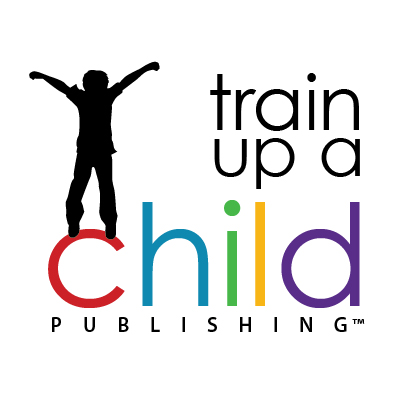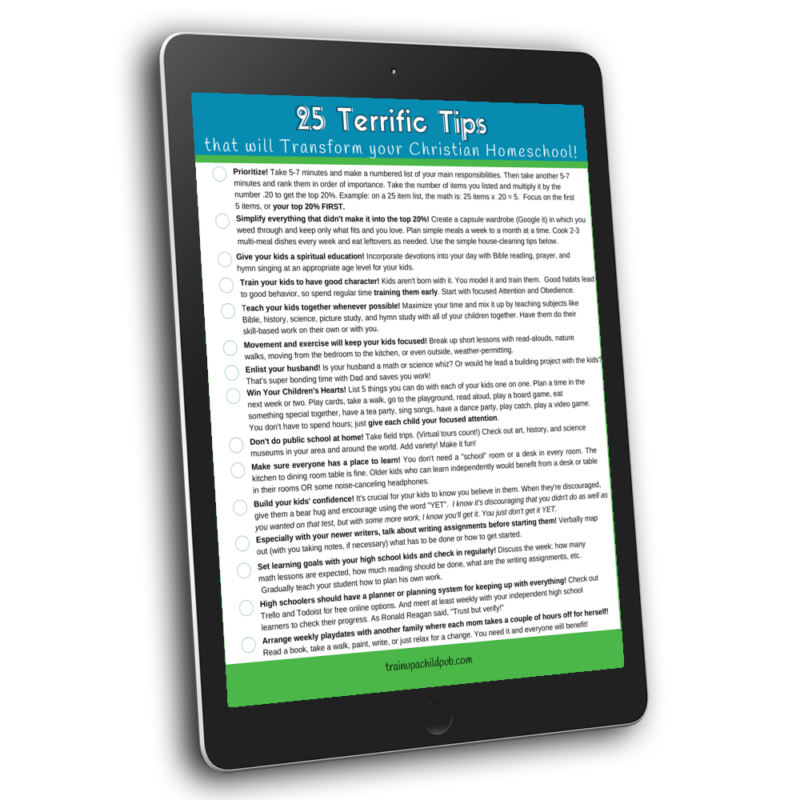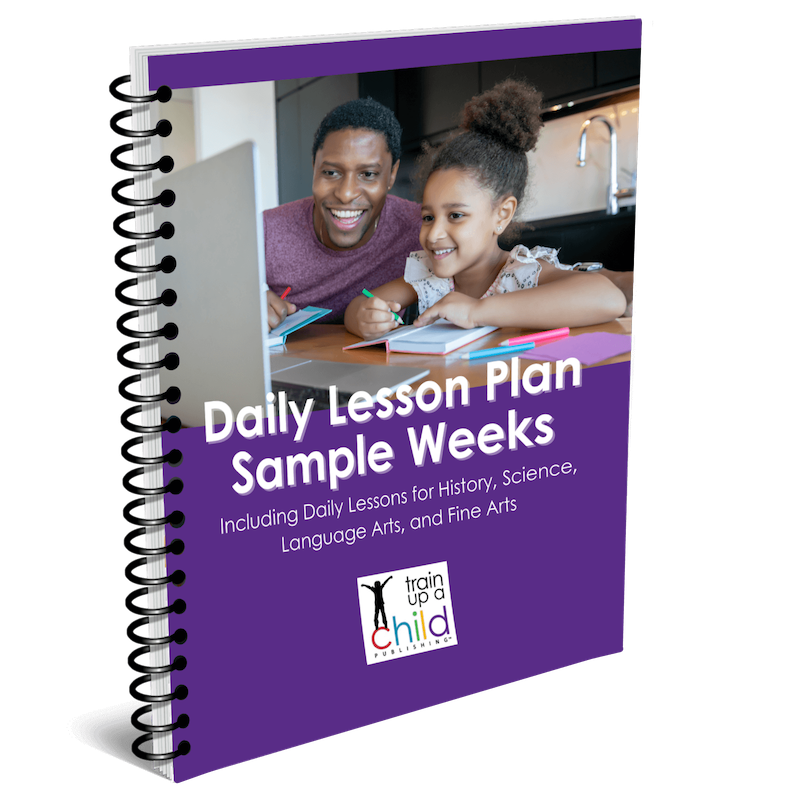10 Tips for Teaching a Reluctant High School Writer

First, don’t panic if you’re teaching a high school writer who dislikes writing.
I call that teaching a “reluctant” high school writer. Battling over writing launches a new type of anxiety into the homeschooling mix, especially if you’re teaching high school writing for the first time.
And all of a sudden, the stakes are higher. Only a few more years left of homeschooling to get everything in.
And don’t forget: as far as writing is concerned, there are a lot of new things. There are narrative, expository, descriptive, persuasive, and (somewhat difficult) comparison-contrast essays. And the dreaded research papers. This new level of writing often makes new high school students (and their moms)quake in their boots.
But you know what?
Writing is just another skill. And you’ve already taught your high school student so many skills by now. YOU’VE GOT THIS.
Teaching reluctant high school writers can be difficult, but if you know these little tips I’m going to share with you, it will be MUCH easier. So don’t panic!
Our oldest was not a reluctant writer in high school. Often it was helping this student focus or narrow the writing that was the issue instead of needing to motivate her to write.
Little did we know that the next child to come along would be the opposite!
In fact, it was so difficult to motivate this one to write before high school that I traded writing instruction with another mom. I taught one of her children writing while she taught this one of mine during middle school. This worked wonders to give all concerned a break and lower the level of tension in our homeschool.
So that may be an option for you to consider if teaching writing has become too time-consuming and difficult or has affected the relationship between you and one of your kids.
But if that’s not possible, keep reading for ten ideas for more easily teaching your high school student who doesn’t like to write, to write.
The first 5 tips are in this post. There’s a link to part 2 with the next 5 tips at the bottom of this post.
If you are teaching a high school writer who is uncomfortable with writing, try these tips:
1. Review the writing basics
I don’t know of too many moms who feel that their high school students’ writing couldn’t use improvement. If your high schooler is heading to college, there are going to be college entrance essays to write. And scholarship application essays to write…and that is just to get into college. There’s also the writing your student will be expected to do in college.
Consequently, getting your reluctant high school writer over this hump is important.
So start with the foundational skills your student needs to write well. Focus on shorter writing assignments to take the pressure off while you work on these topics:
- solid paragraph development
- using correct grammar and punctuation
- writing clearly and succinctly
- creating a solid outline
- using transitions
- self-editing
If your student is not comfortable with these foundational skills, then that’s where you want to start. It’s never too late to learn and practice the basics.
And the basics need to be mastered before heading into the more advanced topics, such as writing introductions and conclusions, crafting powerful thesis statements, and supporting those statements with solid points.
Writing is a skill, just like any other skill
Even if writing seems scary, as I said a minute ago, writing is just a skill. Just as many skills you have learned and taught over the years.
And how do you learn any skill? With step-by-step instruction and practice.
When you’re ready to teach your student how to write at the high school level, you can pick up our high school course, Essay Styles for High School.
It has clear, simple instructions written directly to your student, with LOTS of detailed grading tips to make teaching and evaluating easier. It even has example essays written by actual high school students and instructions for grading first and succeeding drafts.
Especially if you aren’t a natural writer yourself, this is a course that will not only help your student to write. It will also teach you how to evaluate your students’ writing.
I’ve never seen another high school writing curriculum that helps you with that, have you?
Back to my tips.
2. Use high-interest topics when teaching your high school writer wherever you can.
Part of bringing your kids’ homeschool education to life and having a happy, thriving home is working with your kids instead of against them.
So if your student is fascinated by or curious about a particular subject, why not make your job easier by letting your reluctant writer research and write about that?
My reluctant writer is a music lover and was enthralled by guitar, especially electric, in high school. So, to teach research paper writing, I suggested he use the history of the electric guitar as a topic, making the idea of an eight-page paper much less daunting. The research was actually fun.
Additionally, he loved talking about what he was learning, so we got some extra narration in. And even more importantly, he learned about:
- researching a topic
- documenting his sources
- taking notes
- organizing his information
- creating a detailed outline to write from
and more — all while learning more about a topic he was already interested in!
Make the writing process painless because your student is fascinated by the topic.
With a little creativity, you can even legitimately incorporate your highschooler’s interest into your normal studies, while getting in extra writing practice:
- Is your baseball/football/soccer/tennis lover studying American History this year? How about writing a short report on the history of the sport?
- Does your student love art? Suggest your student write about impressionism, cubism, a favorite artist, or the history and creation of oil paint.
- Do you have an avid animal lover? Encourage writing about conservation efforts of endangered species or wildlife crime.
- Is your high school student all about makeup and hair? Assign a paper researching common ingredients of makeup and hair products. Which ones are helpful, and which ones are actually harmful to your health? How are they tested? What product lines are healthier than others?
- Do you have a student interested in a particular field, such as Computer Technology? How about researching and writing a paper on the different university degrees offered and the job prospects of each different computer-related field. What are the typical job duties of each field, and what are the earning potentials?
Sometimes removing the focus from the writing itself and putting it on the highly interesting subject can be all it takes for a student to get the job done!
3. Model writing yourself.
Even though your high school students often look like they’re not aware of you at all, it’s just an act. They’re watching you closely.
So make sure that your homeschooled students see you writing, even if it’s usually email. Let him or her “catch” you reading your email aloud back to yourself so that you can edit it.
For boys, it is even more important for them to see Dad or older male siblings writing. Even in this day and age, boys sometimes develop an attitude that academics, and especially writing, are “girl” things. You probably self-edit without even thinking about it, but try to do it more obviously in front of your kids occasionally.
4. Encourage and incorporate plenty of practice writing in your reluctant writer’s life.
Practical writing skills allow a high school student to practice writing without the pressure of a graded assignment. Thank you notes, emailing correspondence (yes, you can say that no emails will be sent to relatives without being edited first), writing a resume, even writing a description for selling an item on eBay or in the newspaper can be valuable experiences.
Again, help your students see that writing is nothing to be afraid of, but is just a part of normal life.
Especially make sure your high schoolers are writing in the summer, whether it’s practical writing, taking sermon notes, or notes on the news. Or even if they are beginning the next semester’s school assignments at a slower pace, have them do some writing a few times a week.
5. Teach high school writers to edit their work.
This skill is vital for high school students, even reluctant writers. As with all difficult areas, begin small, especially if self-editing is a new concept to your high school.
Have your student only edit for one thing at a time to begin. I usually suggest reading for content first. Use these questions:
- Does my writing make sense?
- Is there any information I need to add to make my writing clearer?
- What point am I trying to get across to the reader?
- Is my writing getting it across clearly?
Reading your writing aloud also helps one catch those duplicate words and those words you thought you wrote that aren’t actually on the page.
I make those mistakes all the time, don’t you?
On subsequent edits, have your high school students check for correct punctuation, varied sentence structure, spelling, formatting, etc. If you’re using our Unit Program Tools, there is a self-editing tool that you can use. It’s part of the Tools folder and in our Teacher’s Manuals, in the Tools section.
If your high schooler is new to editing, make sure and begin with shorter assignments and move on to longer ones as s/he begins to build confidence.
So if writing has been a struggle this year, don’t panic. If you take writing instruction step-by-step and get the help you need, you’ll be fine and your student will get the writing foundation he needs in preparation for high school writing and beyond.
Teaching a high school student is truly a sacrificial act for many parents. When that student is a reluctant writer, the jewels on your crown increase exponentially, I’m sure!
Just remember that this is only one aspect of your student and that you both will make it through with prayer, patience, practice, and time.
Are you struggling this year with a reluctant high school writer? Pick one of these tried-and-true tips that encourages you and start implementing it today!
![]()
Related Posts:
10 Tips for Teaching a Reluctant High School Writer – Part 2
How to Teach Your Students to Write Better in 5 Minutes
Do your kids struggle with Blank Page Syndrome?



Excellent tips! And, not just for homeschooling parents but for any parent or teacher who wants to encourage their child or student to write – or better yet, to actually enjoy the writing process.
Thank you, Lisa! That’s right! You have a good point: not only homeschooling parents deal with teaching reluctant high school writers! Thanks for sharing.
What a great article! This will help a lot of homeschool parents. My son was a reluctant writer in high school, and I can attest to many of these tips on here. It’s so important to go back to the basics and build from there.
Everyone seems to have at least one reluctant high school writer they’re teaching. I agree, just like middle school, high school is a perfect time to go back to the writing basics again before heading off to college (and college writing). Thanks for reading and commenting, Heidi!